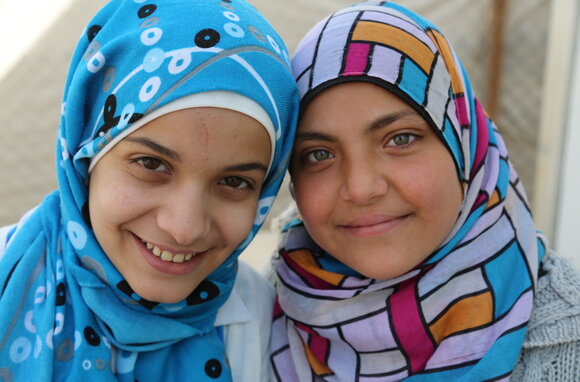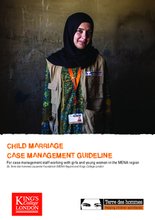

Displaying 41 - 50 of 325
As Israel's war against Hamas continues, children in Gaza are suffering. According to the United Nations, more than 25,000 children have been killed or injured since October. That's one child every ten minutes. We hear about one of those children, a twelve year-old boy injured in Gaza.
The United Nations says famine is likely to set in by May. For those living under Israel’s attacks and a crippling blockade, every day is a race against time.
This guidance aims to tailor existing case management standards and guidance to include specific elements that are relevant to child marriage cases; using the voices of Syrian refugee girls from the Terre des hommes-Lausanne Foundation (Tdh) and King’s College London (KCL) research in Lebanon and Jordan to support Child Protection and Gender-Based Violence case management staff in their case management work on the issue of child marriage.
The present qualitative study seeks to understand parents' perceptions of home or institutional care for children with disabilities. The study utilized an exploratory qualitative approach paradigm with five focus groups in the Qassim region of Saudi Arabia.
The UN's top court has ordered Israel to enable the unhindered flow of aid into Gaza in order to avert a famine.
An aid official who travelled the length of Gaza this week has described scenes of “utter annihilation”, with “nothing left” of what were once thriving and crowded cities in the territory. “The depth of the horror surpasses our ability to describe it,” said James Elder, a spokesperson with the United Nations Children’s Fund (UNICEF).
The long-term consequences of COVID-19 have been tough for children around the world, but even more so for young children already in humanitarian crises, whether due to conflict, natural disasters, or economic and political upheaval. Drawing on research and voices from the Global South, this book showcases innovations to mobilize new funds and reallocate existing resources to protect children during the pandemic.
A Palestinian boy has been talking about living on his own in Gaza after his mother had to leave with his injured sister. UNICEF says there are thousands of unaccompanied children in Gaza after five months of Israel’s war.
According to UNICEF, over a million children in Gaza - almost the entire child population - need mental health support
At least 17,000 children in the Gaza Strip have been left unaccompanied or separated from their families nearly four months into Israel’s assault on the enclave, the United Nations children’s agency estimates.


